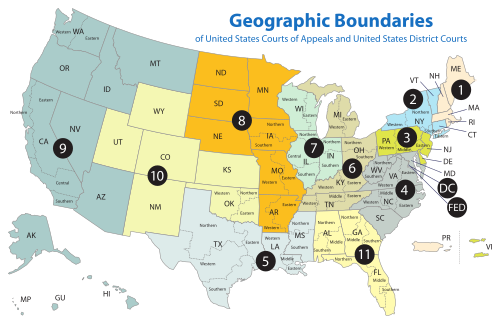References
- ↑ "District of Columbia Court of Appeals – Welcome". Dcca.state.dc.us. Archived from the original on 2008-10-04. Retrieved 2008-12-17.
- ↑ "Superior Court of the District of Columbia – Welcome". Dccourts.gov. Retrieved 2008-12-17.
- ↑ Maureen A. Lawrie. "U.S. District Court for the District of Columbia". Dcd.uscourts.gov. Retrieved 2008-12-17.
- ↑ "Federal Judicial History: Federal Courts of the District of Columbia". Archived from the original on October 7, 2008. Retrieved February 21, 2018..
| Courts of appeals | |
|---|---|
| District courts |
|
| Specialty courts | |
| Territorial courts | |
| Extinct courts | |
| Note | American Samoa does not have a district court or federal territorial court; federal matters there go to the District of Columbia, Hawaii, or its own Supreme Court. |
Highest judicial bodies in the United States | |
|---|---|
| Federal courts | |
| State supreme courts |
|
| Territorial supreme courts | |
| Obsolete | |
| Complete list |
|
| Constitutional law and legislation | |||||
|---|---|---|---|---|---|
| Courts of the United States |
| ||||
| Education | |||||
| Types of law | |||||
